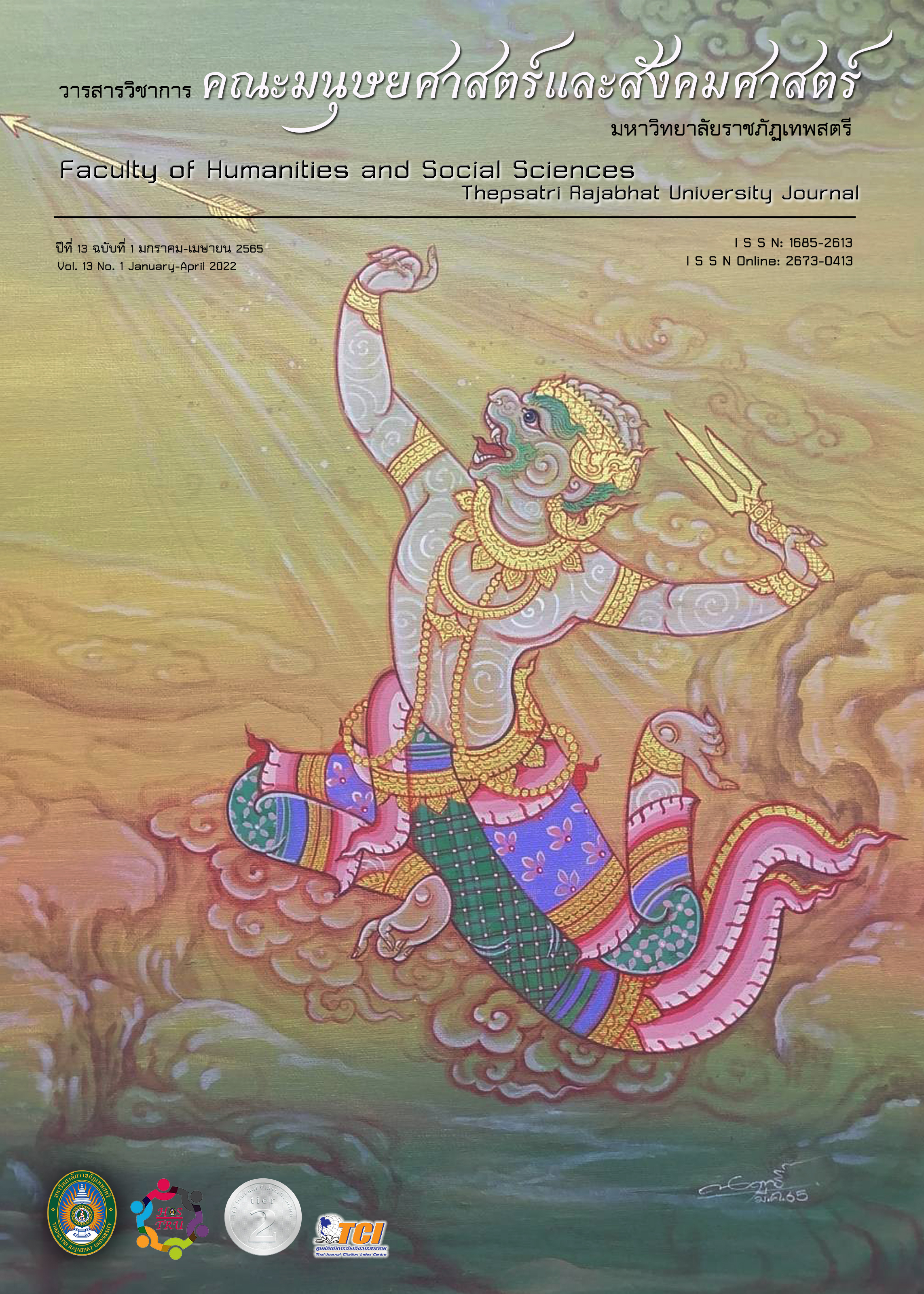Guidelines for Field Trip Activities Designing as A Learning Core and The Moral and Ethical Aspects Development for Music Students in Higher Education
Main Article Content
Abstract
The purpose of this article is to present the guidelines for field trip activities designing as a learning core and the moral and ethical aspects development for music students in higher Education. In response to the studies by using field trip education as a core to integrate the knowledge and musical skills that conform to the aptitude of the students majoring in music from practical experience, the implementation, according to the guidelines, has been conducted into 2 activities, namely, music performance and music teaching beyond classroom. The activities have been conducted according to the concept of the 4 Noble Truths which are applied to these activities in order to accomplish in both learning and working achievements for the students and result in learning outcomes in all aspects. We particularly focus on morality and ethics and has applied the principle of proactive learning in conducting music teaching activities beyond the classroom and the learning outcomes on morality, ethics and professional ethics of the students have been fulfilled. This will be a guideline which presents the activities in the form of moral and ethical learner development to be conformed to and appropriate with the aptitude of the students and also the identity of the music major students who will be able to gain both knowledge and showing potential in musical skills together.
Downloads
Article Details

This work is licensed under a Creative Commons Attribution-NonCommercial-NoDerivatives 4.0 International License.
The content and information presented in articles published in the Academic Journal of the Faculty of Humanities and Social Sciences, Thepsatri Rajabhat University, are solely the opinions and responsibilities of the respective authors. The editorial board of the journal neither necessarily agrees with nor assumes any responsibility for such content in any manner whatsoever.
All articles, information, content, and images published in the Academic Journal of the Faculty of Humanities and Social Sciences, Thepsatri Rajabhat University, are the copyright of the journal. Any person or organization wishing to reproduce, disseminate, or otherwise utilize all or any part thereof must obtain prior permission from the Academic Journal of the Faculty of Humanities and Social Sciences, Thepsatri Rajabhat University.
References
กระทรวงศึกษาธิการ. (2558). ประกาศกระทรวงศึกษาธิการ เรื่อง มาตรฐานคุณวุฒิระดับปริญญาตรี สาขาศิลปกรรมศาสตร์ พ.ศ. 2558. สืบค้น พฤษภาคม 4, 2564, จาก http://www.mua.go.th/users/tqf-hed/news/data6/Bachelor%20of%20Fine%20and%20Applied%20Arts_m1.pdf/.
คณะศึกษาศาสตร์ มหาวิทยาลัยรามคำแหง. (2550). ข้อบังคับคุรุสภา ว่าด้วยแบบแผนพฤติกรรมตามจรรยาบรรณของวิชาชีพ พ.ศ. 2550. สืบค้น พฤษภาคม 4, 2564, จาก http://www.edu.ru.ac.th/images/edu_files/Khurusapha_ethic_2550.pdf.
ทิศนา แขมมณี. (2556). รูปแบบการเรียนการสอน: ทางเลือกที่หลากหลาย (พิมพ์ครั้งที่ 8). กรุงเทพฯ: บริษัท แอคทีฟ พริ้นท์ จำกัด.
เนาวนิตย์ สงคราม. (2557). การศึกษานอกสถานที่และการศึกษานอกสถานที่เสมือนเพื่อการเรียนรู้เชิงรุก. กรุงเทพฯ: สำนักพิมพ์แห่งจุฬาลงกรณ์มหาวิทยาลัย.
นรชัย ณ วิเชียร, เฉลิมชัย กิตติศักดิ์นาวิน, และนลินณัฐ ดีสวัสดิ์. (2561, มกราคม-เมษายน). อริยสัจ 4 กับการพัฒนาองค์กร. วารสารมนุษยศาสตร์และสังคมศาสตร์ มหาวิทยาลัยธนบุรี, 13(1), 165-174.
ปาริชาติ ธีระวิทย์. (2561, มกราคม-มิถุนายน). การเสริมสร้างคุณธรรมจริยธรรมสำหรับนักศึกษาระดับอุดมศึกษาในศตวรรษที่ 21. วารสารเทคโนโลยีภาคใต้, 11(1), 31-39.
พรรณทิพย์ ศิริวรรณบุศย์. (2556). ทฤษฎีจิตวิทยาพัฒนาการ. กรุงเทพฯ: สำนักพิมพ์แห่งจุฬาลงกรณ์มหาวิทยาลัย.
วิจารณ์ พานิช. (2556). วิถีสร้างการเรียนรู้เพื่อศิษย์ ในศตวรรษที่ 21 (พิมพ์ครั้งที่ 3). กรุงเทพฯ: บริษัท ตถาตา พับลิเคชั่น.
ศูนย์โรงเรียนคุณธรรม. (2558). คู่มือปฏิบัติโรงเรียนคุณธรรม. กรุงเทพฯ: บริษัท สหมิตรพริ้นติ้งแอนด์พับลิสซิ่ง จำกัด.
พระธรรมขันธ์. (2546). พจนานุกรมพุทธศาสตร์ ฉบับประมวลธรรม (พิมพ์ครั้งที่ 12 พ.ศ. 2546). สืบค้น พฤษภาคม 28, 2564, จาก https://84000.org/tipitaka/dic/d_item.php?i=186.


